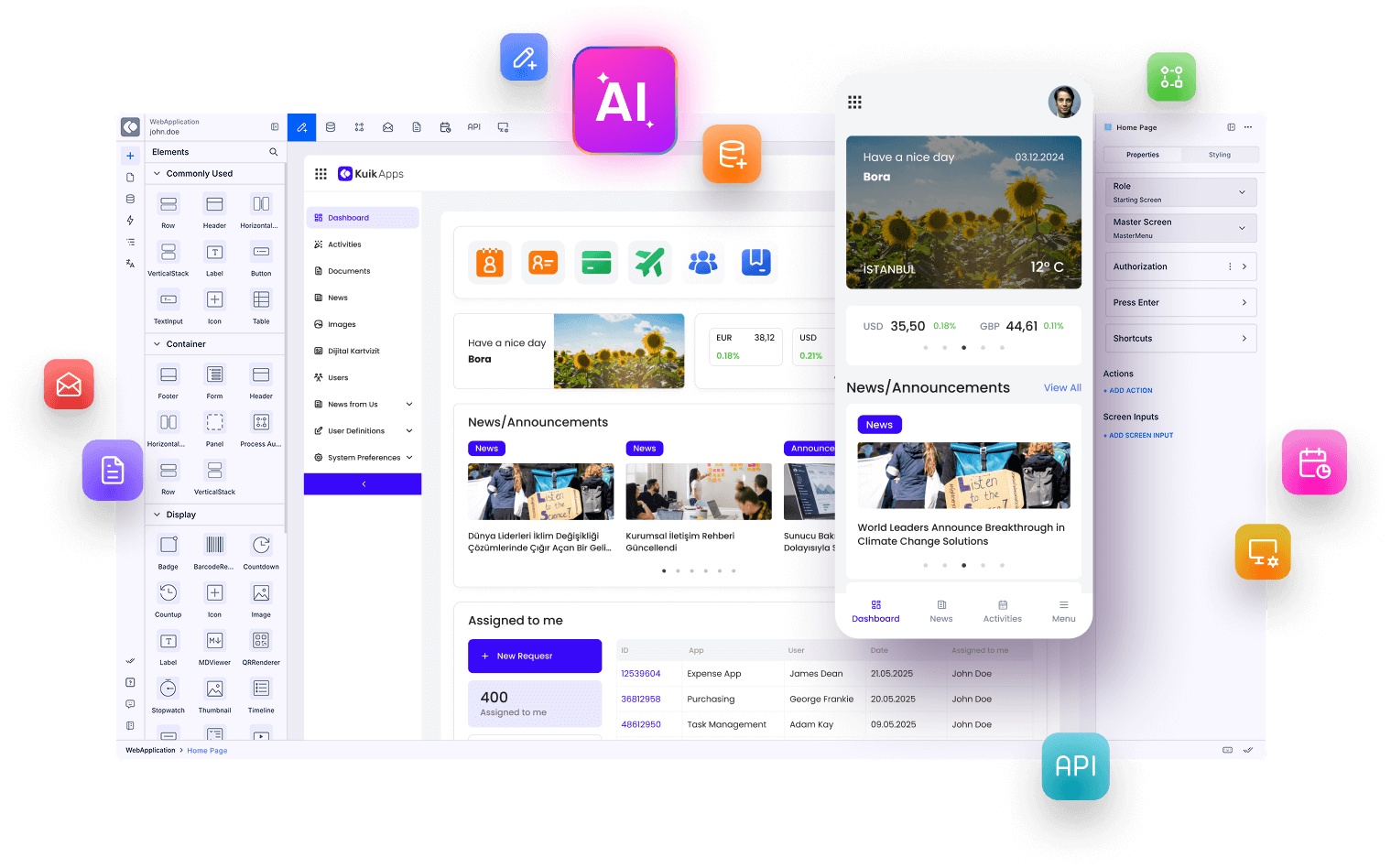If you are working in the software industry, you have likely heard of low-code and no-code application development tools. But did you ever wonder why companies are shifting from traditional development to low-code or no-code tools?
The main reason behind the popularity of these innovative methods is the fast and adaptable processes they provide compared to the hassle and complexity of traditional software development. If you want to dive deeper into the ins and outs of low-code development, this article is the right destination for you. Let’s explore the six major benefits of low-code development in comparison to traditional coding.
What is low-code?
Low-code development can be defined as a fresh breath to software development, allowing people to design and develop applications with minimal manual coding. Low-code development tools leverage easy-to-understand visual interfaces and drag-and-drop features.
Low-code development is gaining recognition because it not only simplifies the development process but also makes it accessible to those who have little to no programming knowledge. This leads to democratized software development and paves the way for faster creation, deployment, and iteration of applications, which enhances efficiency and agility in software development.
The advantages of low-code development
1. Faster time-to-market
In a digital world where pace and agility are priorities in almost every industry, faster development and time-to-market mean a lot to start-ups. Low-code development tools significantly reduce the amount of time to build applications through pre-built UI templates, drag-and-drop features, business process models, and database designs. This allows businesses to spend their valuable resources that are more important and impactful than the development process itself.
2. Enhanced agility
Today’s ever-evolving digital market requires the ability to make split-second decisions regarding products and services. A quick response time is greatly beneficial in keeping pace with rapid customer demand and potential market opportunities. The way low-code democratizes app development enables more people to contribute to digital solutions and allows businesses to keep up with changing industry trends.
3. WYSIWYG
Low-code platforms support "What You See Is What You Get" (WYSIWYG) environments via visual models that serve as a visual representation of what the application will look like when it is built. Providing a visual representation of the application is also important for users to make changes and see the results quickly. The WYSIWYG development environments not only allow users to design and build applications visually but also speed up the development process.
4. Elevated code quality
Low-code platforms employ standardized components and templates that adhere to industry best practices, which results in a reduction of errors and inconsistencies in the code. With low-code development, transforming an e-commerce website into an app for tablets is seamless with the help of automated governance and easy integrations that work in the background. The library of pre-built components and templates adheres to the highest standards of coding and design best practices, ensuring optimal code quality from the outset.
5. Cost-efficiency
Low-code development helps businesses save money as it costs less than financing an entire team of permanent, in-house software developers, or third-party software houses. With low-code platforms, businesses can profit significantly while enjoying a more customized solution.
6. Democratizing app development
Low-code development simplifies the development process through an intuitive graphical user interface. As a result, a wider range of individuals, including business analysts, project managers, and those without coding experience can participate in the application development processes. The rapid prototyping and testing capabilities provided by low-code platforms also enable developers to iterate quickly based on user feedback.
Why should you choose Kuika’s low-code platform?
Choosing Kuika's low-code platform means opting for a path that leads to innovation, efficiency, and a competitive edge in the digital landscape. Kuika offers numerous benefits that set it apart from other low-code development tools.
- Kuika provides its clients with complete ownership of the source code. This is a rare feature in the low-code market that empowers businesses with unparalleled freedom and control over their digital assets.
- Kuika's unique pricing model makes it cost-effective particularly at higher volumes.
- Kuika’s low-code development tool contains an intuitive drag-and-drop interface and rapid deployment capabilities, which democratize app development and make it accessible to a wider audience.
- From the development phase to ongoing maintenance, Kuika offers comprehensive support to its clients. It makes sure that applications remain up-to-date and functional, reducing the need for external services and additional costs.
Choose Kuika's low-code platform to start streamlining your app development processes and foster a culture of innovation and agility within your organization.
















